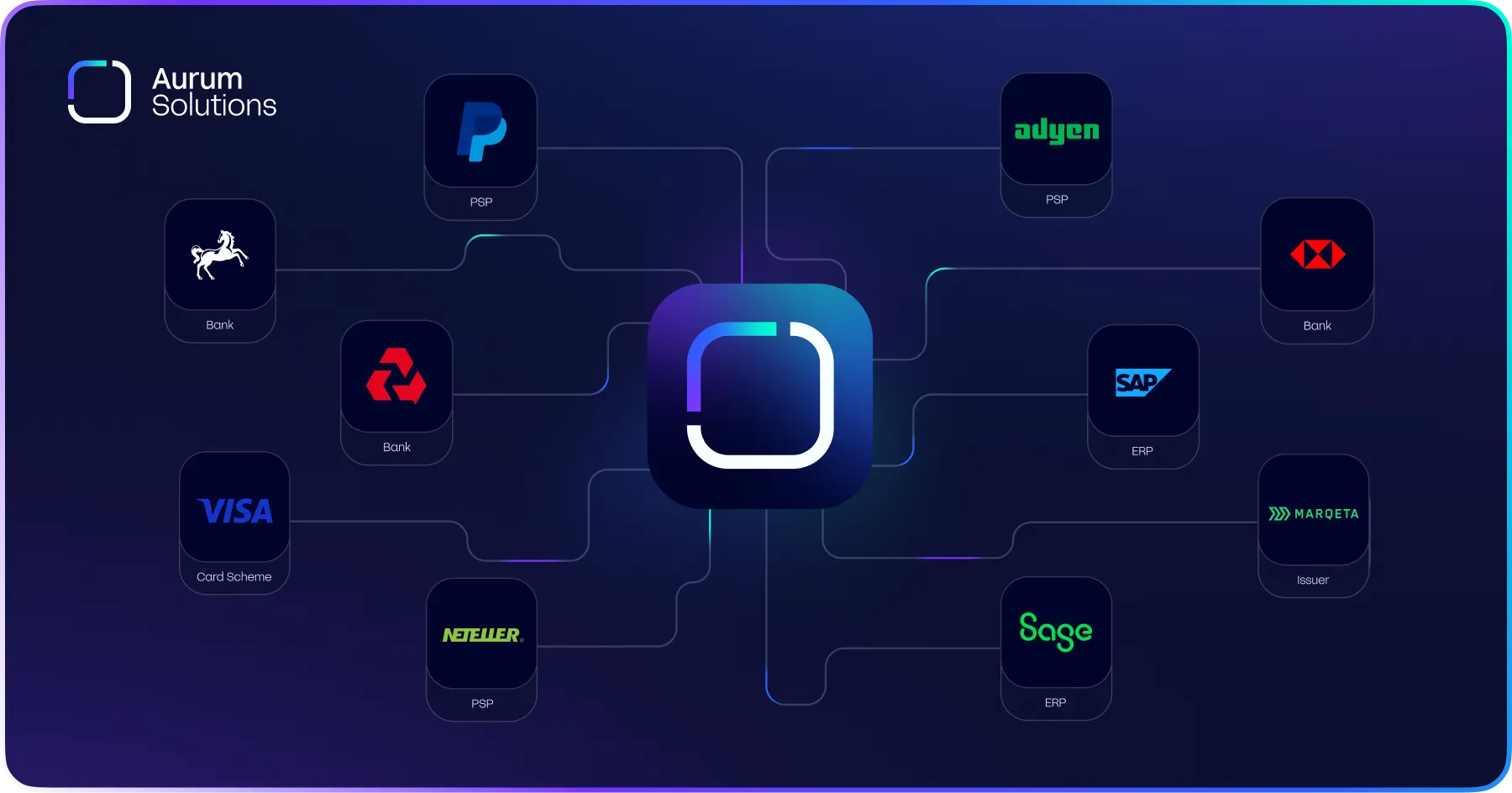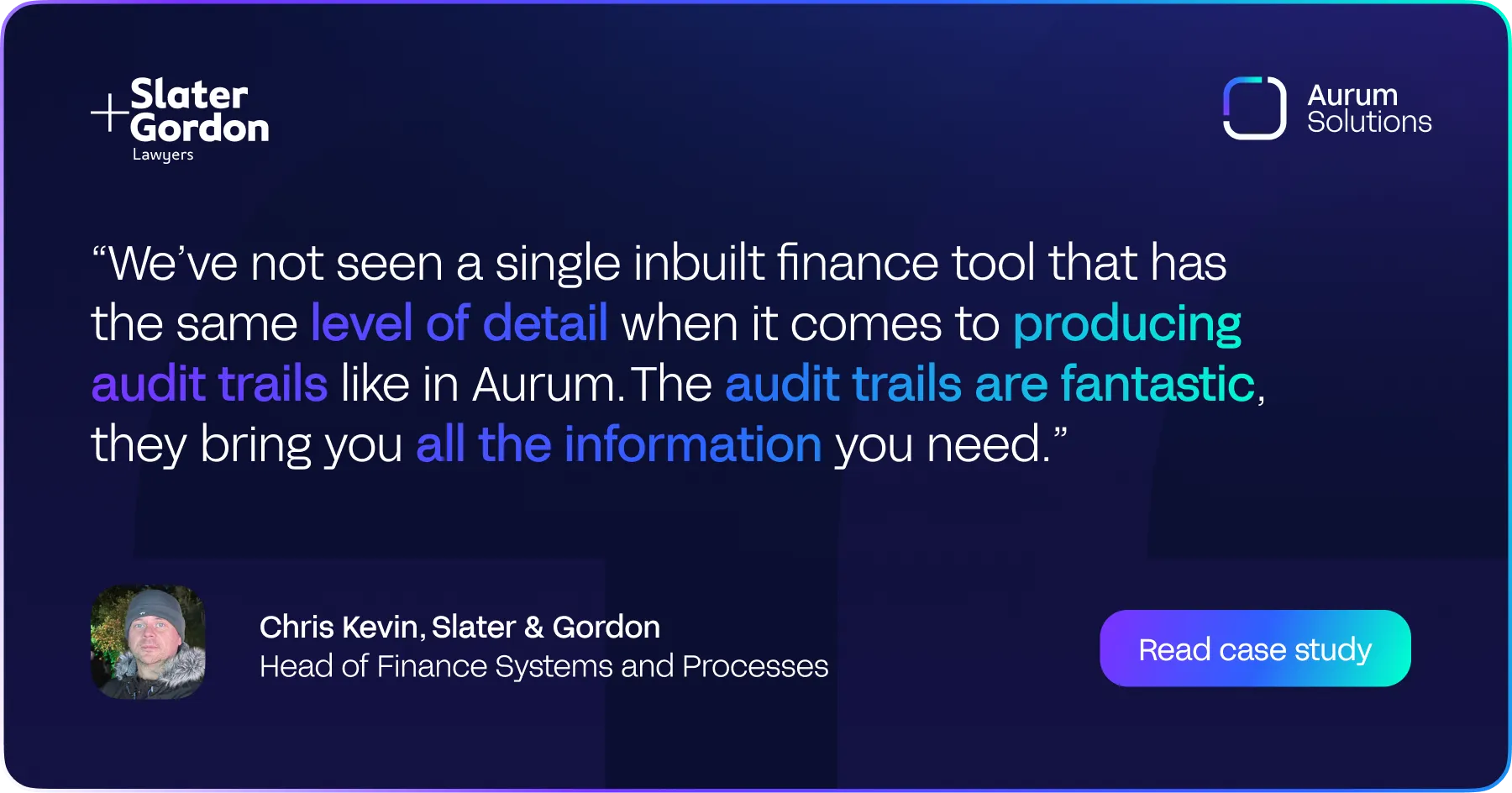Tools for reconciliation: what to look out for
When it comes to having tools for reconciliation, finance teams are allowed to blame their kit if it's not up to scratch. After all, unlike tradesmen who must also personally possess a degree of skill to craft something new, reconciliation professionals are instead tasked with reflecting the data they are handed through achieving accuracy and integrity via a repetitive process.
Tools for reconciliation are therefore not about producing something new through human ingenuity – although some of the best do enable this with data insights – but about eliminating errors by removing human flaws. The emphasis upon reconciliation being conducted properly is therefore placed on the applications which enable it.
What should reconciliation tools achieve?
With this in mind and to help you pick the best reconciliation tools for your operations, let’s take a look at what they should be achieving for you:
API connectivity
First and foremost, in order for reconciliation to take place, every piece of data over a defined time period from at least two sources is required. In an internal client money reconciliation for CASS 7 purposes this would simply see two different types of internal data sources have to be sourced such as individual client balances and the balance of an overall client account. However, for a bank reconciliation for a retail shop like Lakeland with multiple payment options, it could require a bank statement, PSP downloads, cash register, and more.
Whilst the modern payments landscape is therefore brilliant for customers in granting them greater choice on how they would like to spend, it poses a potential headache for those conducting reconciliation. Without a tool that automatically attains the necessary data from other sources, reconciliation officers are left to manually collect the data they require – an extremely time-consuming process when various sources are involved.
This would be the unfortunate scenario if a finance team’s reconciliation tool of choice was Excel. However, if they were to deploy Aurum instead, they would benefit not only from Aurum’s bank of over 600 APIs to stream the data they require automatically into their matching machine but also from it’s ETL (extract, transform, and load) capabilities. As a result, Aurum not only provides the means to important data seamlessly, it also ensures that it is loaded in a consistent manner so that no manual cleansing must take place prior to reconciliation.

Removal of human error
Gathering the necessary data for reconciliation is one thing; however, it is no good if it is then handled incorrectly. Reconciliation software should therefore conduct matching itself with no human intervention. This is the only way to ensure that no errors are made.
After all, despite Excel digitalising a spreadsheet, what takes place within it is still operated by a human. Consequently, it remains highly susceptible to mistakes, especially when large volumes of data in various formats have to be reconciled. The alternative, error-proof resolution is to employ an automated reconciliation platform that possesses easy-to-use no-code rule creation like Aurum. This allows for matching rules to be defined – the only human aspect – with ease, and reconciliation to then commence without any mistakes.
Quick auto-matching
Undeniably, accuracy is a non-negotiable when it comes to reconciliation but any tool which forms part of the process should also be fast. This requirement is swiftly becoming vital in today's world of real-time payments and the ever-evolving responsibilities of finance professionals who must do more than merely cross-reference numbers. Such conditions mean that finance teams are experiencing higher volumes of transactions to reconcile yet with more tasks to complete in the same amount of hours. Time-saving is therefore essential.
Rote activities such as reconciliation make prime candidates for reclaiming time, especially when the main event of it – matching data – can be done automatically. To meet both transactional volume demands and that of new finance responsibilities, reconciliation tools must therefore be quick in completing their work. Fortunately, for users of Aurum, this is definitely the case, with British Land completing their reconciliation 46x quicker, Moneybox saving 11.3 hours a day, and La Tinka reconciling all of their accounts in just 2 minutes – all thanks to adopting our software.

Exception management
Getting to a problem faster might not seem overly exciting, but that is essentially what reconciliation software achieves when it spots exceptions. What is more appealing is resolving issues quicker. As a result, reconciliation management should do more than just highlight a problem before metaphorically wiping its hands with it.
Instead, it should assist with exception management. Top-range reconciliation tools achieve this with intelligent input delivering likely reasons for breaks. Yet the job still isn’t done because an official resolution must be found, resulting in investigation being a necessary requirement.
However, exceptions can often lie dormant for long periods of time if investigators aren’t properly notified of their workload. Luckily, this problem is easily overcome with reconciliation tools such as Aurum that possess in-app communication. Not only does this notify for investigation to begin, but it also guarantees that all communications relating to exception management are saved within one platform rather than disparate sources, making audit gathering a lot easier.
Compliance
Keeping up with real-time payments is one thing but those involved in reconciliation know all too well that they must also regularly look back into the past for audit purposes. A reconciliation tool that simply reconciles transactions therefore never completes a full job. For instance, with the likes of Excel not recording any details such as when transactions are imported, when they are reconciled, who reconciled them etc., important information will remain unknown forever, instantly compromising audits.
However, with millions of transactions processed daily and each having multiple actions, the only realistic way to keep track of everything associated with them is to automate audit trails. Whilst this is completed as standard in Aurum with no alterations required, other compliance requirements aren’t as simple because regulations are prone to change, and in some instances, entirely new ones come into formation.
As a result, although regulation changes might not come around often, when they do, firms have no choice but to adapt to their demands quickly. A recent example from the world of UK gambling is the imminent implementation of quarterly returns by all licence holders. As a result, in order for reconciliation tools to keep you in line with regulations, flexibility is a must but so too is awareness of changes. One without the other is useless. Fortunately, Aurum’s agility is perfectly complemented by the fact that the people behind it are experts in their specific industries and have experience working in the financial sector.

Data visibility and business insights
Finance teams don’t provide insights exclusively to external auditors; important personnel from within a company also regularly receive them. With reconciliation matching software working to ensure data integrity, it naturally possesses the foundational data that is needed to generate insights. As a result, it makes complete sense for reconciliation tools to leverage the data it matches in ways that present valuable intel. This way, data doesn’t have to be fed elsewhere and risk becoming corrupted.
Given that everyone has different data requests though, crystal clear data visibility is only attainable when data manipulation is flexible. After all, presenting data in only one format will make one insight transparent but will hide others. When it comes to data visibility, reconciliation tools must therefore be flexible. This is true regarding both presentation and content. For instance, the former can be achieved with dashboards, reports, graphs, etc., whilst the latter should offer even greater possibilities. When it comes to Aurum users, that is definitely the case, with them benefiting from the generation of bespoke reports that focus on intel that they specifically wish to extract from their transactions.

Scalability
Facilitating automatic loading of data from multiple sources, error-proof matching at speed, compliance with regulations, and value-adding data insights all mean that the best reconciliation tools set up businesses with a solid foundation for growth. If these tools can keep up with the growth they themselves facilitate though is what separates the best from the rest.
After all, reconciliation is a process which means that no transaction can be missed and there are often requirements that it is completed within a certain timeframe. As a result, reconciliation applications must be able to scale – in other words, they should continue to operate at fast speeds whilst absorbing greater volumes of transactions. In order to fulfil this feat, reconciliation tools must be built with expansion in mind by possessing:
- FX rate reconciliation to expand into new geographies
- A large bank of APIs to expand into new customer bases with additional payment methods
- Scalable processing power to expand the volume of overall transactions they process
Given that Aurum possesses all of these scalable attributes, it is no surprise that PeppercornAI adopted the platform due to their high growth ambitions.
Journal entry automation
Reconciliation and journal entry creation go hand in hand. The best reconciliation tools will therefore encompass journal entry automation into their arsenal of services.
Although journals can be posted through other means, doing so with reconciliation software presents many benefits. This includes journals being automated so that they are completed swiftly in minimal time and journals being coded by set rules to ensure consistent results without human error.
Considering that journal entries build a complete picture of the financial position of a business, and reconciliation software ensures data integrity, it is crucial that a variety of journals can be created by reconciliation software. That’s why Aurum can be adapted to fit any template and automatically produce the likes of allocation journals, correcting journals, fee journals, and more.
Ultimately, the best reconciliation software thinks of the bigger picture. It doesn’t merely reconcile transactions, it also shares its intel to generate and upload journal entries.
A toolbox for all your reconciliation tools
Evidently, reconciliation tools can deliver many benefits. However, just like the reconciliation process itself, their application should be efficient too. As such, it is always best to employ a reconciliation platform rather than a multitude of tools. After all, if you find yourself logging into reconciliation software to match transactions, a communication channel to discuss exception management, and a journal generator to log your entries, the essence of the problem of having to manually import data from various sources due to not having any APIs has reared its head again in a different form.
Fortunately, such a platform exists in the form of Aurum. Not only capable of absorbing multiple reconciliation functionalities and more into one platform, it also has the flexibility to take on additional transactions, payment options and currencies, making it the perfect tool to consolidate and scale with.
To find out more about the ultimate toolbox for all your reconciliation activities, book a demo today.



